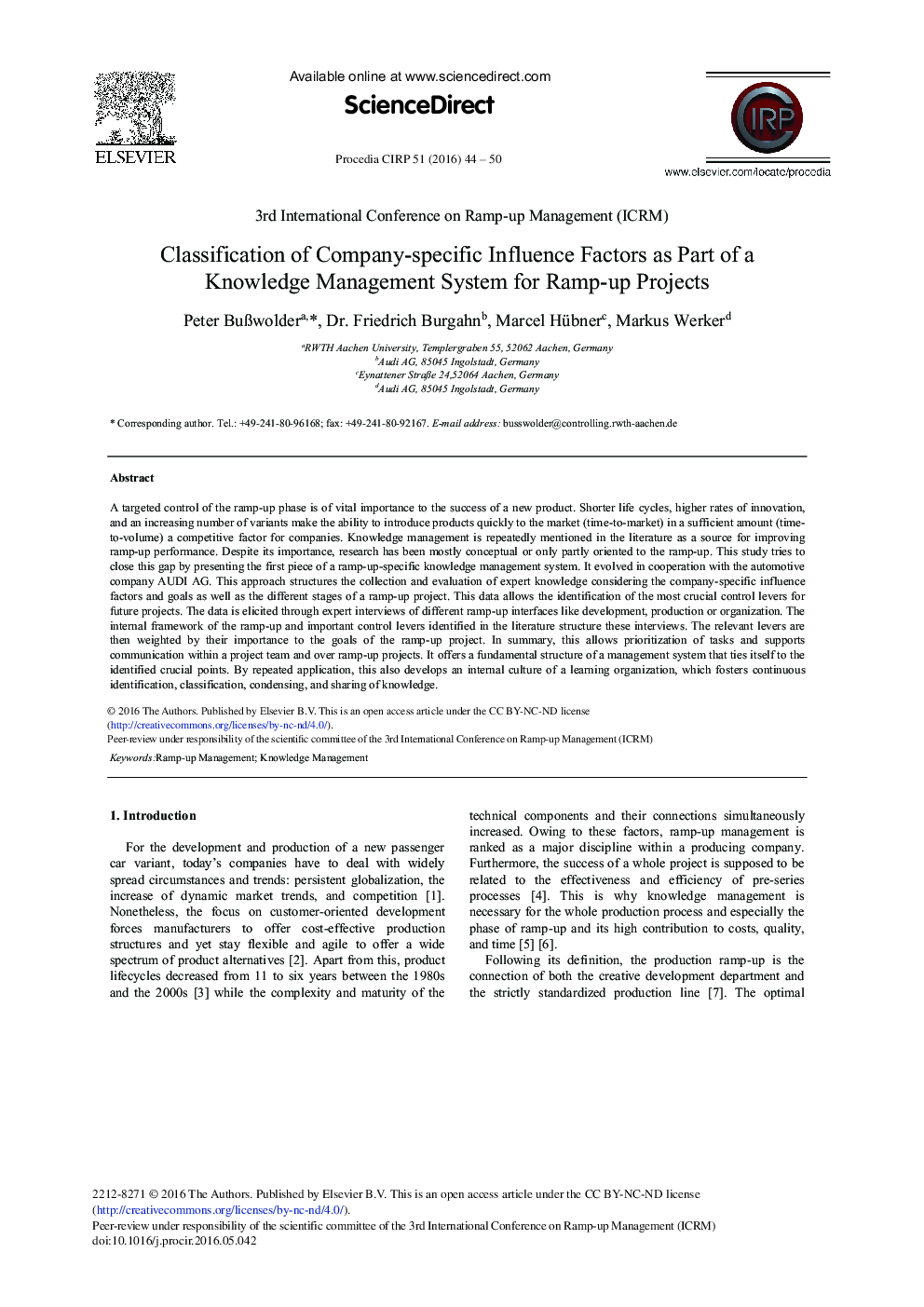| کد مقاله | کد نشریه | سال انتشار | مقاله انگلیسی | نسخه تمام متن |
|---|---|---|---|---|
| 1698098 | 1519301 | 2016 | 7 صفحه PDF | دانلود رایگان |
A targeted control of the ramp-up phase is of vital importance to the success of a new product. Shorter life cycles, higher rates of innovation, and an increasing number of variants make the ability to introduce products quickly to the market (time-to-market) in a sufficient amount (time-to-volume) a competitive factor for companies. Knowledge management is repeatedly mentioned in the literature as a source for improving ramp-up performance. Despite its importance, research has been mostly conceptual or only partly oriented to the ramp-up. This study tries to close this gap by presenting the first piece of a ramp-up-specific knowledge management system. It evolved in cooperation with the automotive company AUDI AG. This approach structures the collection and evaluation of expert knowledge considering the company-specific influence factors and goals as well as the different stages of a ramp-up project. This data allows the identification of the most crucial control levers for future projects. The data is elicited through expert interviews of different ramp-up interfaces like development, production or organization. The internal framework of the ramp-up and important control levers identified in the literature structure these interviews. The relevant levers are then weighted by their importance to the goals of the ramp-up project. In summary, this allows prioritization of tasks and supports communication within a project team and over ramp-up projects. It offers a fundamental structure of a management system that ties itself to the identified crucial points. By repeated application, this also develops an internal culture of a learning organization, which fosters continuous identification, classification, condensing, and sharing of knowledge.
Journal: Procedia CIRP - Volume 51, 2016, Pages 44–50
